Editor's Note
Tsinghua University plays an active role in promoting the 17 UN Sustainable Development Goals (SDGs) by nurturing innovative talents, enhancing research, among many other important ways. This piece focuses on the story of Liu Jing, alumna of Tsinghua University and her efforts in environmental protection with International Union for Conservation of Nature (IUCN).
Ecological preservation is crucial to mitigating climate change. Liu Jing, a project manager for China at the International Union for Conservation of Nature (IUCN), knows this all too well.
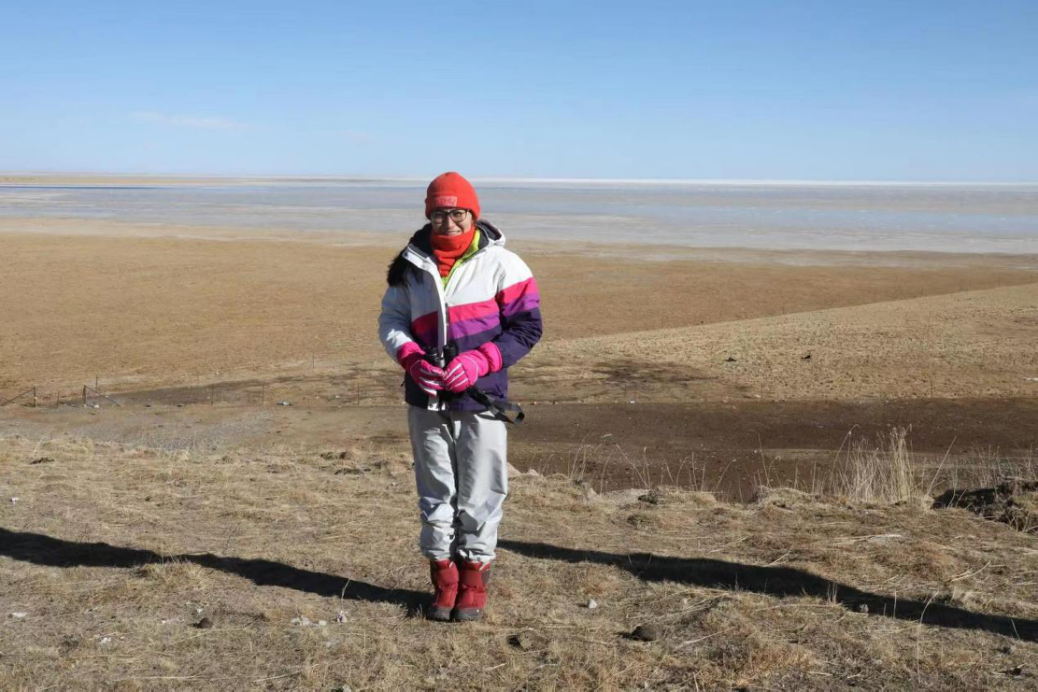
Having spent nearly a decade taking part in a wide range of nature restoration initiatives in China, Liu also knows that time is running out to adapt to climate change, and without the collective efforts of all in an interdependent world like today's, the endeavor to save the environment cannot make considerable progress.
“There must be ways to better the environment without harming the economies, I believe so. We must unite together to work out solutions firmly and fundamentally,” says Liu.
Liu is among many Tsinghua graduates who play an active role in the ecological conversation efforts around the world.
She hopes her experience can inspire others, particularly younger generations, to take action on environmental issues.
Liu completed her bachelor's in environmental science and master's in international environmental management from the School of Environment. After graduating from Tsinghua in 2012, she began her career as Corporate Social Responsibility (CSR) Manager at Upsolar, a leading international solar panel manufacturer, providing corporate views and resources to on-campus students.
But her aspiration to work in an international organization related to environmental conservation couldn't keep her at that company for long.
Working for IUCN
Less than a year into her job, she joined the IUCN Beijing office. This was the beginning of her journey to work in natural conservation. IUCN is an international organization composed of both government and civil society organizations working to promote global nature conservation efforts and accelerate the transition to sustainable development.
The preparation of the 2014 IUCN Green List of Protected and Conserved Areas, which enlists natural sites that meet such standards as good governance, sound design and planning, effective management, and positive conservation outcomes, was one of the first big projects Liu was involved in at the IUCN China.
That year, the IUCN's Green List included 25 protected areas, among which six were from China. It was a feat for China as the listing showed that its efforts to conserve existing green ecosystems were paying off. Over the years, China has made remarkable efforts in the integrated protection and management of mountains, rivers, forests, farmlands, lakes, grasslands, and deserts while pursuing the green development path, promoting an ecological civilization.
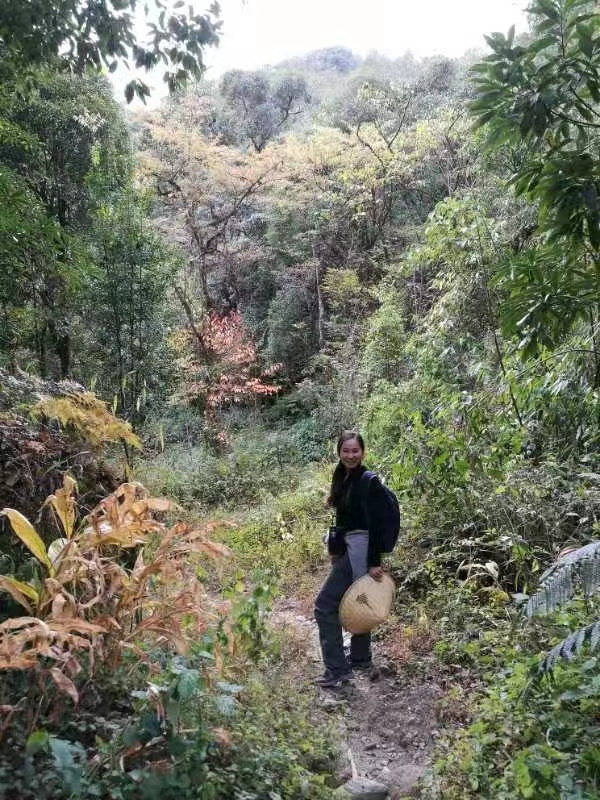
Liu investigating collective forest vegetation
Down to grassroots, closer to reality
Another major highlight of her time with IUCN has been her involvement in environmental conservation efforts at the grassroots level.
She and her team carried out field studies to help develop conservation strategies suitable for the local level. She says not understanding the local context might lead environmental conservation efforts to failure.
A few years ago, in Fengning Manchu Autonomous County of Hebei Province, residents casually dumped waste in watercourses, which would flow to the headwaters of the reservoir that supplied water to Beijing, causing pollution.
To solve the problem, Liu and her team helped install ecological restrooms and garbage pools so locals would stop polluting watercourses. However, later on, when Liu came back to the village, she found the entire set of garbage pools unused, locked away in a room.
At first, she was confused. But when she inquired with the village leader, he pointed out that the unavailability of extra funds for trash collection had led villagers not to use those pools.
“We have always been playing the role of a ‘giver,’ taking it for granted that the receiver enjoys what we give, which is the biggest mistake we tend to make,” says Liu.
Thanks to a “Beautiful Countryside” policy launched later by the local government, extra funds were allocated for garbage collection, and the garbage pools were again put back into service.
Liu strongly encourages young people to go to the grassroots, as it helps them get connected with reality and learn precisely what people yearn for.
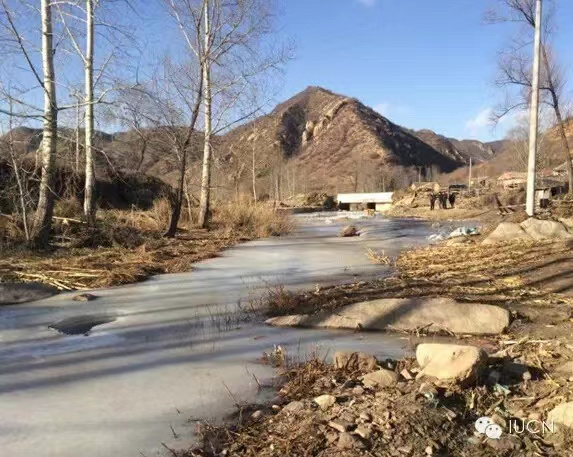
Headwaters of Miyun Reservoir
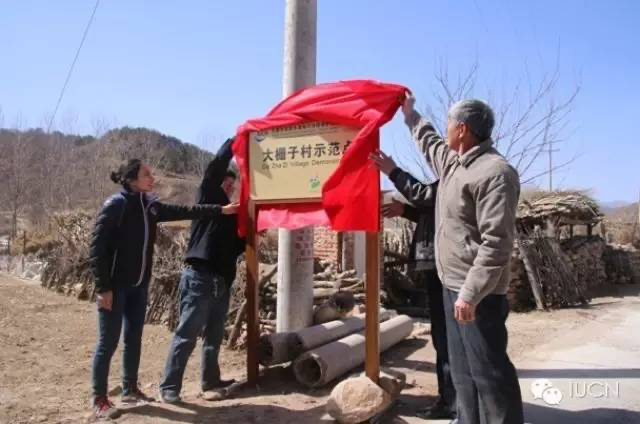
IUCN's protection of water sources
From Tsinghua to international organizations
“No matter whether you are going to devote your career life to global issues, it's a great opportunity for students, especially students from China, to work with international organizations,” says Liu, encouraging students to apply for internships.
Liu says her time at Tsinghua helped her immensely as she moved forward in her career as she learned a lot of practical skills as a student.
“If it were practical, I'd have relived the Tsinghua life again,” says Liu. “The memory of studying on campus is worth cherishing throughout one's life.”
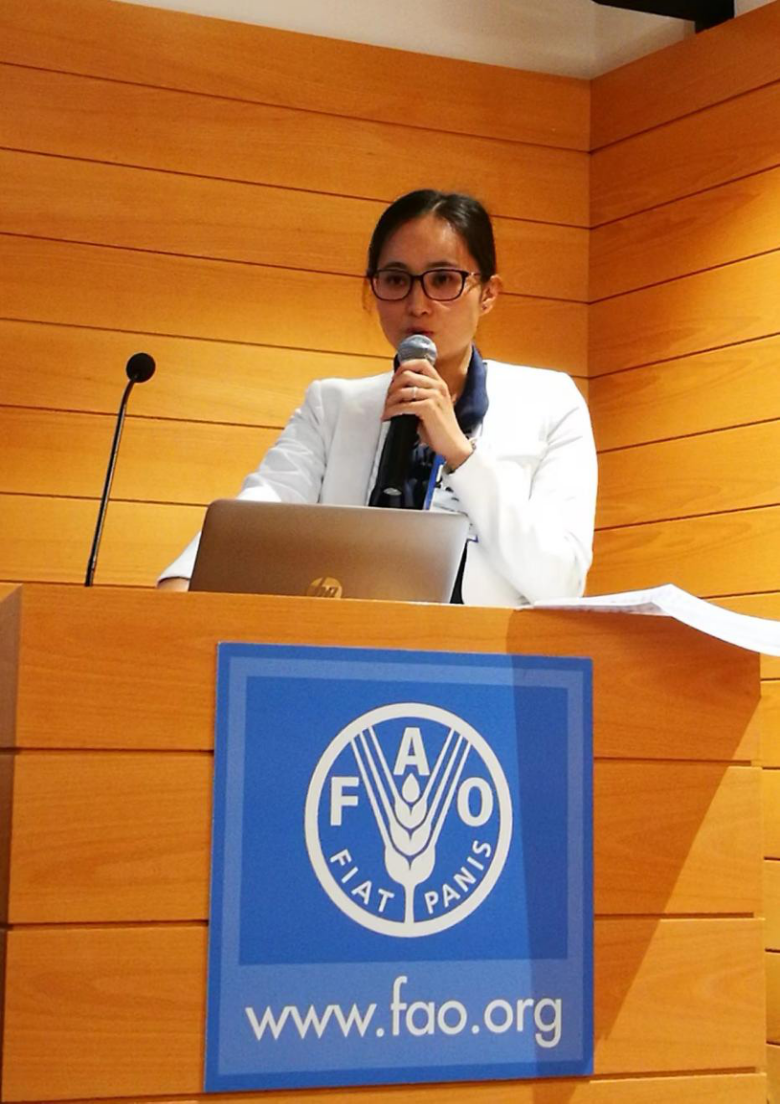
Liu giving a speech at an FAO conference





